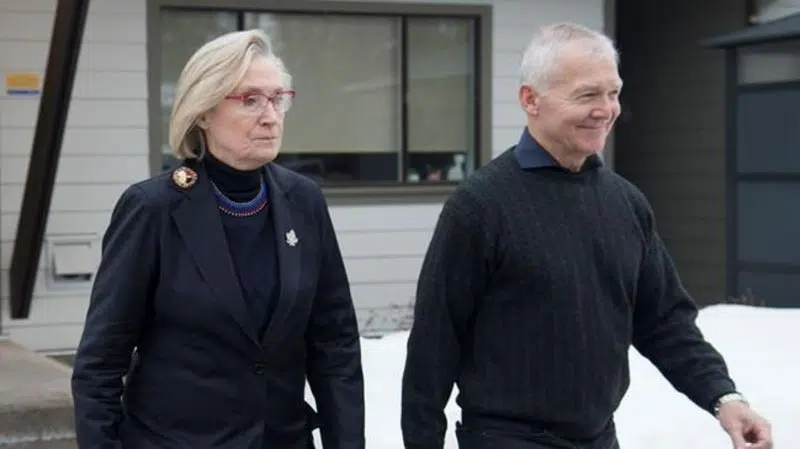
There’s no ‘quick fix’ in B.C. pipeline talks: government liaison says
SMITHERS, B.C. — Wet’suwet’en hereditary chiefs met for a second day with senior government ministers over a pipeline dispute that’s sparked protests and economic disruptions, but one participant warned against expecting a broad resolution on Friday to all the issues being discussed.
Federal Crown-Indigenous Relations Minister Carolyn Bennett and British Columbia Indigenous Relations Minister Scott Fraser began the long-sought talks Thursday afternoon before returning the next morning to the Wet’suwet’en office in Smithers, B.C., where talks continued into Friday night.
A spokesman for Bennett said the talks would continue late into Friday night and there may be no comment until Saturday morning.
The hereditary chiefs have urged Prime Minister Justin Trudeau and B.C. Premier John Horgan to join them at the table, and on Friday Bennett left the door open to that possibility in the future.


